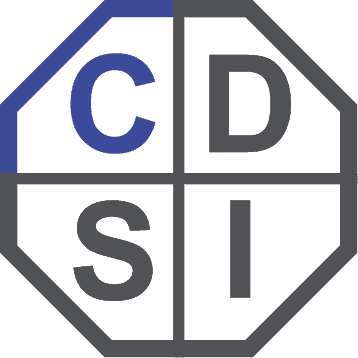In the pressure cooker environment of elite sport, conflict is bound to occur and absolutely should occur. In fact, I would be more concerned about a lack of conflict in sport than too much… Whether you are a coach, athlete or sports professional, you need to understand the best way to recognize and manage conflict in a way that results in a positive outcome.
What is Conflict in Sport?
The easiest way to see conflict is as a disagreement or clash of ‘patterns’ between people. It often begins through a difference in people’s behaviors, interests, desires, or values. Conflict can also begin through jealousy or personal dislike of other’s values. Even if you enjoy spending time with those you work with in your sporting role, working closely with the same people day in and day out can occasionally cause a little friction. Unfortunately, small tensions between individuals can, over time, develop into full-blown conflicts. The good news is that not only can you resolve most conflicts using DISC theory, but more importantly, you can predict what the conflict will be and therefore, begin prevention before it takes hold.
Recognizing Conflict in Sport
Even before overt conflict occurs, there is undoubtedly smaller, covert conflict which likely went unaddressed. When trying to successfully manage conflict it is critical to notice it when it begins and before it escalates to a crisis situation. As stated above, we often use DISC theory to show where conflict is likely to occur between the different DISC styles and then through consultation with those involved, create awareness of how to manage it, before it becomes unproductive. Closely monitoring your behavior and the behavior of others can give insight into where discussions and situations may go. This can help to identify where conflict may come from. Although some clues may be obvious, there are other more subtle hints, so those with high levels of self-awareness and empathy are most able to adapt their approach to managing these situations.
Outcomes of Conflict in Sport
Conflict often gets perceived as only having negative outcomes. This often can be the case if the conflict is managed inappropriately or it is ignored altogether. However, conflict usually leads to eventually, positive outcomes.
Negative Outcomes
- People feel defeated or demoralized, anxious, stressed or inadequate.
- A distrustful or suspicious environment is created.
- Communication can be disrupted, leading to a lack of cooperation and information not being conveyed.
- Poor work and team relationships develop;
- There is a decline in productivity.
Positive Outcomes
- Increases motivation and creativity, new ideas as people look for new approaches.
- Leads to clarification of issues and ideas.
- Encourages team performance and cohesion.
- Develops tolerance.
- Increased trust can be developed within relationships.
- Assists with evaluation of existing systems and processes.
- Increases productivity and sense of achievement.
Strong and enduring relationships can develop after conflict or disagreement. Overcoming a situation shows commitment to the relationship from both sides, and the experience can help to further understand each other. While not always the most enjoyable way to build a strong relationship, overcoming conflict can be very effective.
Managing conflict in sport using DISC
So how do you manage conflict? And why should you? Managing conflict is about attempting to find the most ‘positive outcome’ for both parties. The key is learning to manage our emotions (always easier said than done), so these emotions do not cloud our judgment or make us do something we regret… Learning to identify your triggers (those ‘things’ or events, which lead to a certain feeling or emotion) and catch hold of your behavior in the heat of the moment, is vital to constructive conflict resolution. Teaching your athletes to manage their emotions also becomes a vital part of a coach’s role also.
It is vital to manage conflict in a skillful manner, as undoing the damage caused in the heat of a moment response can sometimes take a long time and a great deal of effort. When this is coupled with the highly personal relationship between colleagues, a coach and athlete or team members, managing conflict in a skillful way becomes even more important. Sometimes relationships are even beyond repair. Hence why conflict must be addressed prior to this degree of deterioration. An appropriate way to manage an escalating conflict is to have a productive conversation between the parties involved.
DISC can be used to anticipate the way different behavioral styles act in stressful situations. When you anticipate a reaction, you can adopt strategies to put that person at ease. At the very least, once you recognize that many of the actions or behaviors you dislike in another person are instinctive behavioral preferences and that they are not simply doing this to annoy you, it goes a long way to fostering tolerance and understanding.

Conflict with a Dominance Style
A Dominance style individual prefers a direct, straightforward approach to dealing with all of their issues, challenges and problems – conflict being one of them. They in turn respond best to others dealing with them with a direct approach also. Therefore, when a problem with a Dominance style individual arises, it can be best to have a conversation right away. Since Dominance style individuals can be inclined to impatience, get straight to the point. D’s are also task rather than people -orientated, so when discussing the issue it can be best to focus on the task, and avoid emphasizing emotions. In fact, if you get at all emotional or personal, D’s will react badly and likely disengage from the conversation or worse still, will attach you. Dominance style individuals will likely not be immediately sympathetic to emotional appeals. Focus on the task: concentrate on solutions rather than the original problem. One advantage of the Dominance style is that they are quick to take action, once they are aware of the problem they won’t put off implementing a solution.
Conflict with a Influence Style
Unlike the Dominance style, an Influence style individual prefers a more conversational approach to conflict resolution. When an issue arises with an Influence style individual, it is best to immediately emphasize that the issue is behavioral, not personal and that together we can work towards an acceptable solution. In having your conversation, keep the atmosphere positive and informal. Ensure the Influence style individual is given plenty of opportunity to talk and that you are actively listening to their concerns. I’s are also people -orientated, so explaining your problem in emotional terms will increase the likelihood that they understand the issue. I’s typically move on pretty quickly from issues and live in the moment, so do not dwell on issues or bring up the past with them. Just move on with them.


Conflict with a Steadiness Style
The Steadiness style individuals in your workplace are the natural peacemakers, they like everyone getting along. Of all the styles, a high Steadiness style individual is least likely to be engaged in a conflict, but most likely is going to harbor negative feelings and not express them until it is at a point where they are boiling inside. The Steadiness style prioritizes relationships, so when you are discussing an issue with an S, emphasize that despite the conflict, you still value and appreciate them as great team contributors. As Steadiness style individuals are more indirect, they will try to avoid direct confrontation whenever possible. To counter the S’s dislike for confrontation, ensure that you are calm when discussing the issue and give them time to set aside energy to deal with the issue. Give them advance warning of the impending conversation so they can get used to the idea of a potentially conflict style discussion. Aggressive or forceful behavior makes an S agree to any solution just to end the discussion, so please avoid bullying them into a position, because an S will get the final say as they eventually just opt out and leave either the team or the organization altogether. A Steady style individual is usually an excellent listener, so clearly and calmly explain your side of the issue, and you will achieve the best result.
Conflict with a Conscientious Style
As Conscientious style individual will best manage an issue if you give them time to prepare for it and plan their approach. So schedule a time for the discussion, ensure they don’t feel ambushed by springing the discussion on them. Conscientious Style individuals can often see a critique on their behavior or technique as a personal attack. So be wary of this when discussing any issue. Ensure you frame the discussion to be about behavior or technique, not them as an individual. Explain yourself clearly, be completely rational and use facts, data and verifiable evidence to support your position. The C style individual is usually a very good problem solver, so explain your issue, and then let them develop a plan fix it.

Summary
So, next time you are feeling frustrated with someone in your sporting environment, think about how to best manage it using DISC. Having a basic understanding of conflict management and how critical conversations should be managed, is an essential tool which should be in everyone’s toolbox. Remember conflict is not always negative, and some great outcomes can be achieved when conflict is handled in a skillful manner. Essentially effective conflict management is about improving communication with those around you. As we know Communication is the Key to Success, this will help you and your team achieve a better overall performance!
For more information on how to communicate better and prevent ‘brain snaps’ see our articles on ‘The Amygdala Hijack – When Your Brain Snaps in Sport ‘ and ‘Coaching Effectiveness: A Guide to Creating Engaged Athletes through Better Coaching Interactions’.
At Athlete Assessments, we’re here to provide you with excellence in service and here to help you be your best. If there is anything we can assist you with, please Contact Us.





